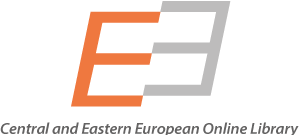The JHRM editorial process is strictly followed and carried out in the steps as follows:
1. Preliminary inspection: The editorial office follows ethical principles (link to instructions: https://www.jhrm.eu/publication-ethics-statement/), so after the article is submitted (Click to Submit Paper) to the JHRM editorial office, the article is checked for consistency with other sources, using an anti-plagiarism system. If plagiarism is identified, the author is contacted to be informed of that, and the paper is rejected.
2. Preliminary assessment: If no significant match with other sources is found (in step 1), the article is then assessed for publishing in the JRHM in the terms of the thematic focus adequacy, timeliness, scientific quality, linguistic adequacy, and the compliance with formal requirements, defined in the “Guidelines for authors” (Click to see the instructions). This initial assessment is carried out by the JHRM Editors (Senior Editor-in-Chief, Editor-in-Chief and Associate Editors). At this level a manuscript may be rejected from the editorial process; in the case of a positive evaluation, the article is sent for the further peer review process (point 3).
3. Peer review: The JHRM operates on a transparent and rigorous peer review system, to ensure the high quality of published articles. The Executive Editor is responsible for the process, where the Editorial Board is further involved, and the assistance of the Editor-in-Chief is also provided. The blinded peer-review process is ensured by 2 independent reviewers, who specialize in areas of HRM manuscript. In case of two completely different reviews receiving, the manuscript is sent to the third reviewer for consideration. The average time for review is 30 days. In the Journal of HRM the length of the entire review process is being carefully monitored. Reviewers are approached from among academic and research sphere, considering their scholarly and publication history. The emphasis is placed on efficient and fair evaluation, to adhere the set peer-review processes. The peer review process is in the Journal of HRM focused primarily on principles:
– Results originality
– The value of theoretical and empirical parts of the article
– Article structure adequacy
– Relevance of the topic to current scientific discourse
– Relevance and possible application of results in organisational practice
– Academic honesty
In structured reviews, reviewers have the option to recommend the article for publishing without any modification, recommend it for publishing with minimal modifications, recommend it for publishing with substantial modifications, or not recommend it completely.
4. Editing of the article by the authors: The authors are notified of the results of the peer review process along with the reviewers’ recommendations and questions. If the reviewer recommends modifications, the author could make additions and changes based on the reviews within two weeks. The manuscript is then subjected to peer review again (step 3).
5. Editorial opinion: The Editorial Board (Senior Editor-in-Chief, Editor-in-Chief and Editorial Board have the final say) will take a final opinion based on the submitted manuscript, the results of the peer review process (peer review and reviewers’ comments to the Editor). The author is notified immediately by email of the final opinion outcome.
6. Proofreading and manuscript editing: In the case of a positive editors ‘opinion on the manuscript publishing, the manuscript is subjected to language proofreading (English language quality control), the formal edit check, the text scope and compliance with the contribution template, as well as checking the adequacy of the bibliographic references (Click to see the instructions). The operational collaboration with the author(s) of the article is until the final manuscript is approved by the responsible editor (Executive Editor).
7. Publication: The final article form is approved and published on the JHRM website in open access form (after signing the Publishing Agreement).
The process described above takes about 3-4 months, depending on the length and the course of the peer review process.
Published articles are archived on the website of the co-publisher the Slovak Academic Association for Personnel Management (SAAPM). If the journal’s page is not functional, or the magazine has ceased to exist, it is possible to use the archive.









